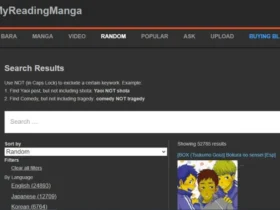Introduction to Math Playground and its Benefits
Welcome to the world of Math Playground, where numbers come to life and equations become an exciting adventure! Whether you’re a student or a parent looking for fun ways to sharpen math skills, this virtual playground is the perfect place to exercise your mathematical muscles. From interactive games and puzzles to engaging tutorials, Math Playground offers endless opportunities for learning and growth.
But like any playground, it’s easy to make a few missteps along the way. Don’t worry though, because today we’re going to dive into the 6 biggest mistakes that many people make on Math Playground – and how you can easily avoid them! So grab your thinking cap and let’s uncover these common pitfalls in our quest for mathematical mastery. Are you ready? Let’s get started!
Common Mistakes Made on Math Playground
When it comes to using Math Playground, there are a few common mistakes that many students make. These mistakes can hinder their progress and prevent them from fully benefiting from this valuable resource.
One of the biggest mistakes is not taking advantage of the available resources. Math Playground offers a wide range of tutorials, videos, and interactive games that can help students understand and practice various math concepts. By neglecting these resources, students miss out on valuable opportunities to reinforce their learning.
Another mistake is relying too heavily on memorization. While there are certain math facts that need to be memorized, understanding the underlying concepts is crucial for long-term success in mathematics. Simply memorizing formulas or procedures without truly grasping why they work can lead to difficulties later on.
Skipping steps and not showing work is another common error. In math, precision matters, and showing your work allows you to identify any errors or misconceptions along the way. It also helps others (such as teachers or tutors) understand your thought process and provide guidance when needed.
Many students hesitate to ask for help when needed. Asking questions or seeking clarification is essential for deepening understanding and overcoming challenges. Don’t be afraid to reach out – whether it’s asking a teacher for assistance or collaborating with peers – as this can greatly enhance your learning experience.
To avoid these mistakes, it’s important to be proactive in utilizing all available resources at Math Playground: watch tutorials, play interactive games, seek guidance when necessary.
Not Taking Advantage of Available Resources
One of the biggest mistakes that students make on Math Playground is not taking advantage of the available resources. Math Playground offers a wide range of tools and materials to help students understand and practice math concepts in a fun and interactive way.
For example, there are instructional videos that explain various math topics step by step. These videos can be extremely helpful for visual learners who prefer seeing examples before attempting problems themselves.
Additionally, Math Playground provides interactive games and puzzles that reinforce different mathematical skills. These games not only make learning enjoyable but also provide an opportunity for students to apply what they have learned in a practical context.
Furthermore, there are printable worksheets and online quizzes that allow students to assess their understanding of specific math concepts. These resources can be used as practice exercises or as assessments to track progress over time.
By not utilizing these resources, students miss out on valuable opportunities to enhance their math skills and deepen their understanding of key concepts. Taking advantage of the available resources on Math Playground can greatly improve comprehension, retention, and overall performance in mathematics.
So next time you log onto Math Playground, don’t forget to explore all the tools at your disposal – from videos to games to worksheets – because they are designed with your success in mind!
Relying Too Heavily on Memorization
Memorization can be a useful tool when it comes to learning math concepts, but relying too heavily on it can hinder your progress in the long run. Many students make the mistake of trying to memorize formulas and equations without truly understanding their underlying principles.
Math is not just about rote memorization; it’s about developing problem-solving skills and critical thinking. When you rely solely on memorization, you miss out on the opportunity to truly grasp the logic behind mathematical concepts.
Moreover, relying too heavily on memorization can lead to confusion and frustration when faced with unfamiliar or complex problems. If you don’t understand how a formula works or why an equation is set up a certain way, chances are you’ll struggle when confronted with variations or applications of that concept.
Instead of relying solely on memory, focus on understanding the underlying principles behind each mathematical concept. Take the time to break down formulas and equations into their basic components and explore their relationships. This will help solidify your understanding and enable you to apply them flexibly in different scenarios.
Additionally, practice applying these concepts through real-world examples or word problems. By doing so, you’re not only reinforcing your understanding but also honing your problem-solving skills – which are crucial for success in math playground activities.
Remember, math is more than just numbers and symbols; it’s a language that allows us to describe patterns and solve real-life problems. So don’t limit yourself by simply relying on memorized information – embrace the beauty of mathematics by truly understanding its foundations!
Skipping Steps and Not Showing Work
When it comes to math problems on the playground, some students have a tendency to rush through the steps without showing their work. They might think they can do everything in their head or that showing their work is unnecessary. However, this is a big mistake that can lead to errors and confusion.
One of the main reasons why it’s important to show your work is because it allows you (and others) to see exactly how you arrived at your answer. By writing out each step, you create a clear roadmap for yourself and anyone who needs to check your work. This makes it easier for others to follow your thought process and identify any mistakes along the way.
Additionally, by skipping steps and not showing your work, you’re missing out on an opportunity for learning and growth. Math isn’t just about finding the right answer; it’s about understanding how different concepts fit together and being able to explain your reasoning. When you skip steps, you miss out on valuable practice in problem-solving techniques.
Another reason why showing your work is crucial is that it helps prevent careless errors. When you take the time to write out each step, you’re less likely to make simple mistakes like forgetting a negative sign or misplacing a decimal point. Showing your work forces you to slow down and double-check each calculation as you go along.
Furthermore, by not showing your work, you may struggle with more complex math problems later on. Skipping steps when faced with challenging questions can lead to confusion and frustration since there may be multiple ways of approaching these types of problems. By consistently practicing good habits like showing all of our calculations now, we set ourselves up for success in future math endeavors.
Skipping steps and not showing our work might seem faster or easier in the moment but ultimately leads us astray from mastery in mathematics. Taking advantage of opportunities such as working through each step carefully will improve comprehension skills while also reducing errors. So, let’s remember to slow down, show our work,
Not Asking for Help When Needed
One of the biggest mistakes that students make on Math Playground is not asking for help when they need it. Whether it’s a concept they don’t understand or a problem they’re struggling with, seeking assistance can make all the difference in their learning journey.
Math can be challenging, and sometimes we get stuck. But instead of trying to figure it out on our own, reaching out for support can provide valuable insights and guidance. Don’t let pride or fear hold you back from asking questions – remember that even experts seek help when faced with difficult problems.
By seeking help, whether from teachers, classmates, or online resources, you open yourself up to new perspectives and strategies. Sometimes all it takes is a fresh set of eyes to spot an error or offer an alternative approach. Collaboration and discussion foster deeper understanding and enhance problem-solving skills.
Don’t underestimate the power of teamwork either. By working together with peers who may have different strengths and weaknesses than you do, you can learn from each other’s experiences and build a strong foundation in math.
Remember that asking for help is not a sign of weakness; rather, it demonstrates your determination to master mathematical concepts thoroughly. Embrace the opportunity to learn from others’ expertise and grow as a student.
So next time you find yourself stuck on Math Playground or any math-related challenge – don’t hesitate! Reach out for support because there are people ready to lend a helping hand along your math journey
How to Avoid These Mistakes
To avoid falling into these common Math Playground mistakes, there are a few simple strategies you can implement:
1. Take advantage of available resources: Math Playground offers a wide range of resources such as tutorials, practice problems, and interactive games. Make sure to explore these tools to strengthen your understanding of different math concepts.
2. Don’t rely too heavily on memorization: While it’s important to have basic math facts memorized, don’t solely rely on this method for problem-solving. Instead, focus on developing a deep understanding of the underlying principles and strategies used in various mathematical operations.
3. Show your work and avoid skipping steps: Even if you think you can solve a problem mentally or in your head, it’s crucial to show your work step by step. This not only helps you spot any errors but also allows others (such as teachers or classmates) to follow along and provide feedback if needed.
4. Don’t hesitate to ask for help when needed: If you’re stuck on a particular concept or problem, don’t be afraid to ask for assistance from teachers or peers. Collaborating with others can provide valuable insights and help clarify any confusion.
5. Practice regularly and review past mistakes: Consistency is key when it comes to improving math skills. Set aside dedicated time for regular practice sessions on Math Playground and review any mistakes made in previous exercises or assignments.
6.Embrace the learning process! Remember that making mistakes is an essential part of learning mathematics—don’t get discouraged if things don’t always go smoothly at first. Stay persistent, stay positive, and keep challenging yourself with new problems and concepts.
By avoiding these common Math Playground mistakes and implementing these strategies into your learning routine, you’ll be well-equipped to make the most out of this invaluable educational platform!
So what are you waiting for? Dive into Math Playground today and embark on an exciting journey towards mastery in mathematics.
Read more: Millie Bobby Brown history and bio






























